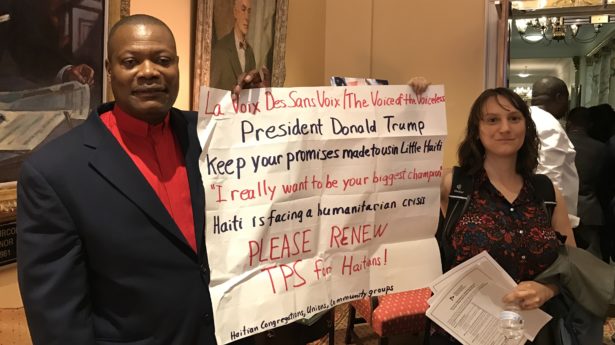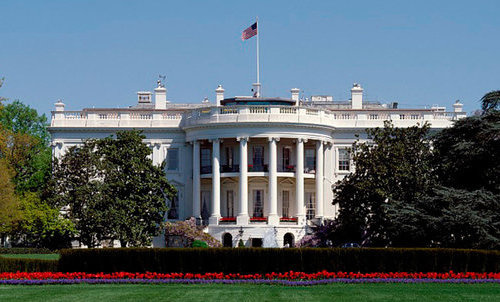The Unitarian Universalist Service Committee advances human rights through grassroots collaborations.
UUSC Recommendations for the Global Compact on Migration
May 24, 2017
On Tuesday, May 23, Salote Soqo, senior program leader for environmental justice & climate action, spoke as a respondent at the Second Informal Thematic Session for Global Compact on Migration at the United Nations Headquarters in New York. Speakers at the event identified the many causes of forced migration and improvements for global migration policy, which will be incorporated into the Global Compact on Migration, the first intergovernmentally negotiated UN agreement to cover all dimensions of international migration in a holistic and comprehensive manner.
Read Soqo’s full remarks on climate-forced displacement below.
Thank You, Your Excellency.
The Unitarian Universalist Service Committee, through our work with some of the most vulnerable communities around the world, and particularly in the South Pacific and in Alaska, recognizes that climate-induced environmental degradation is an obvious driver for human mobility.
In the interest of time, I would like to emphasize four main points based on our experience thus far:
Firstly, it is important for us to acknowledge that the root causes of climate-induced displacement are not climate change per se, but global economic and power inequality. Industrialized countries therefore have an obligation to protect those that are made vulnerable by their carbon emissions. We must assign responsibility to where it is due.
Secondly, there have been previous remarks made by member states to center the global compact on a human-rights centered approach. We concur with this concept and reiterate the recognition that the experts of this approach are the communities that are most affected by these issues and who inherently hold the power to meaningfully address these problems with dignity—these are Indigenous People, women, children, the elderly and people living with disabilities, and farmers and fishermen whose subsistence and livelihood depend on their natural environments, and those living in remote areas of the world. Their active participation must be mandatory in state responses, their rights must be respected, and means to incentivize and implement community-based climate initiatives must be enabled through this compact. And more to the point of internally displaced populations, states must recognize that they have the obligation to protect their residents within their borders, and this compact should enforce their existing obligations.
Thirdly, building protections in place to protect communities where they are must always remain the priority, and if relocation is a necessity, which is particularly the case for small island developing states where displacement is inevitable for some islands, it must be planned proactively. It is thus important that this global compact work in tandem with the instruments of the United Nations Framework Convention of Climate Change (UNFCCC) and the accompanying institutions to enforce adaptation, disaster risk reduction, emergency humanitarian aid, and mandatory mitigation measures, particularly through the extension/renewal of the Doha Agreement, to compliment aspects that are not addressed by these instruments in order for this compact to be of value-add, and to avoid repetition.
Lastly, the compact must recognize that climate change is a multiplier of risks, as stated throughout this session. In some situations, this leads to conflict and violence, which often leads to forced migration. Thus, there is increasing recognition amongst states that climate change is a national security issue, and indeed it is, but it is important that, and in the spirit of unity and moral conscience, that the compact avoids language or measures that further dehumanizes or commodifies climate-forced displaced populations and must intentionally combat xenophobia and other forms of religious, cultural, and social discrimination against migrants.

